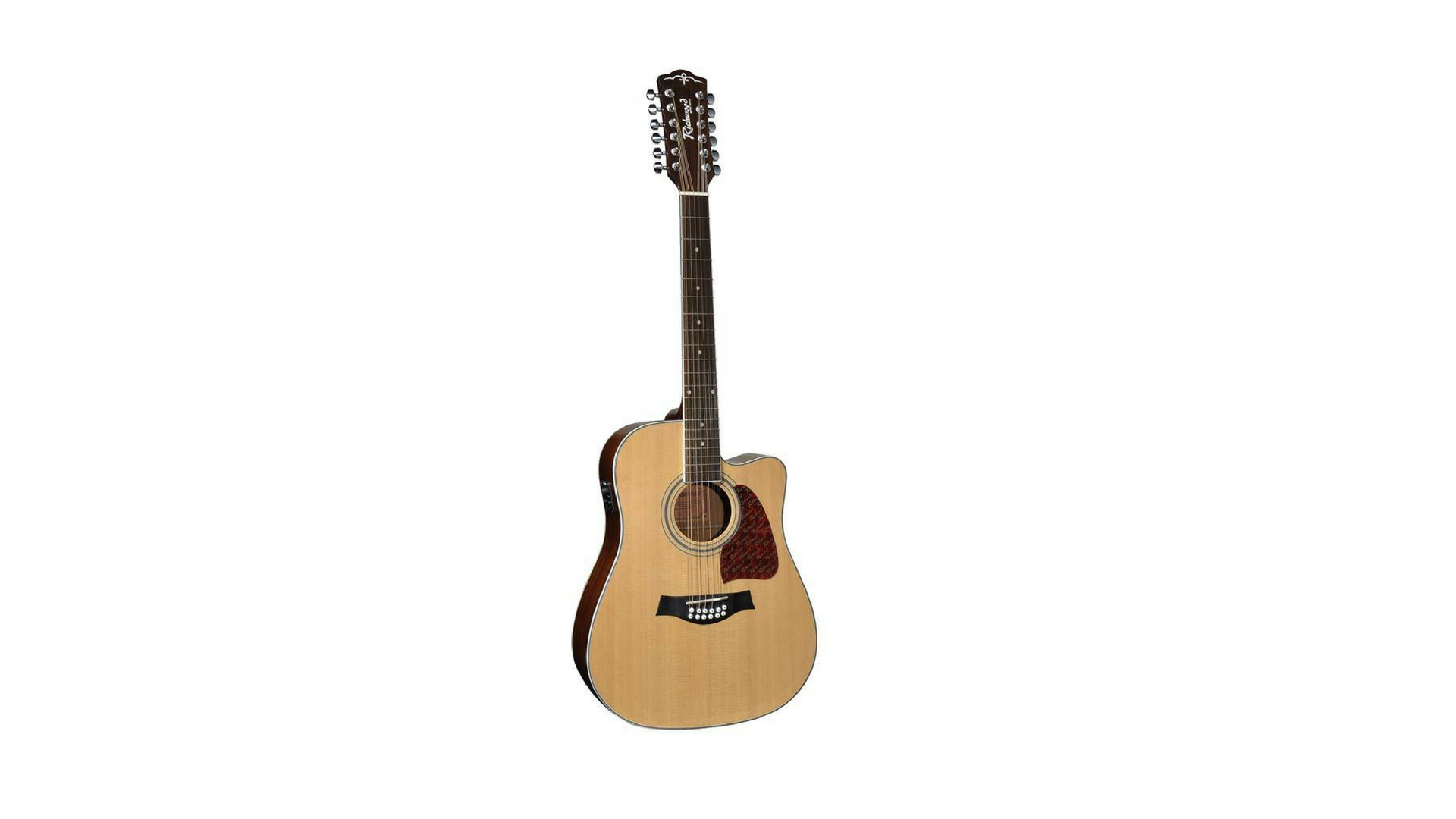Introduction
Electric guitar strings are a crucial component of the instrument, directly influencing its sound and playability. Understanding the materials from which these strings are crafted can provide valuable insight into their unique characteristics and the impact they have on the overall performance of the guitar. Whether it's the bright and crisp tones of steel strings, the smoothness of nickel strings, the durability of coated strings, or the softness of nylon strings, each material offers distinct advantages for different playing styles and musical genres.
As a guitarist, selecting the right type of strings is akin to choosing the perfect tools for a craft. It's essential to consider factors such as tonal preferences, playing technique, and the desired lifespan of the strings. With a wide array of options available, from traditional steel strings to modern coated varieties, guitarists have the flexibility to tailor their sound to suit their individual preferences.
In this article, we will delve into the diverse world of electric guitar strings, exploring the materials used in their construction and the unique characteristics that define each type. By gaining a deeper understanding of the composition and properties of electric guitar strings, players can make informed decisions when selecting the ideal strings for their musical endeavors. Whether you're a seasoned guitarist or a novice player, this exploration of electric guitar string materials aims to provide valuable insights to enhance your musical journey.
Steel Strings
Steel strings are the most common choice for electric guitars, renowned for their bright and articulate sound. Typically composed of high-carbon steel, these strings offer exceptional durability and a vibrant tonal quality. The magnetic properties of steel make it an ideal material for interacting with the pickups of an electric guitar, producing a clear and resonant sound that is favored in various musical genres, from rock and blues to country and metal.
One of the defining characteristics of steel strings is their ability to deliver a pronounced attack and sustain, allowing for expressive playing styles and dynamic tonal nuances. The inherent brightness of steel strings lends itself well to lead guitar playing, providing clarity and definition to each note. Additionally, the robust nature of steel ensures that these strings can withstand heavy strumming and bending without compromising their integrity, making them a popular choice for energetic performances.
While traditional steel strings are revered for their classic sound and reliability, players can also explore variations such as stainless steel and nickel-plated steel strings. Stainless steel strings offer enhanced corrosion resistance, making them suitable for players with acidic sweat or those performing in humid environments. On the other hand, nickel-plated steel strings provide a smoother feel and a warmer tonal character, striking a balance between the brightness of steel and the mellowness of nickel.
Whether you’re seeking a cutting-edge sound for blistering solos or a robust foundation for rhythm playing, steel strings present a versatile and time-honored option for electric guitarists. Their unwavering resilience and vibrant tonal properties have solidified their status as a staple choice among players seeking a dynamic and expressive sound.
Nickel Strings
Nickel strings, also known as nickel-wound strings, offer a distinct tonal profile that appeals to a wide range of guitarists. These strings feature a steel core wrapped with nickel-plated steel, resulting in a balanced and warm sound with a smooth feel under the fingers. The combination of steel and nickel creates a harmonious blend of brightness and warmth, making nickel strings a popular choice for players seeking versatility and a comfortable playing experience.
One of the defining characteristics of nickel strings is their ability to produce a rich and rounded tone, making them well-suited for rhythm playing and chordal accompaniment. The inherent warmth of nickel-wound strings imparts a pleasant sweetness to the sound, contributing to a mellow and expressive sonic quality. This makes them an excellent choice for genres such as jazz, blues, and classic rock, where a smooth and articulate tonal character is highly valued.
Furthermore, nickel strings are favored by players who prioritize playability and comfort. The nickel-plated winding offers a silky texture, reducing finger noise and providing a tactile experience that is gentle on the fingertips. This makes them an appealing option for extended playing sessions, allowing guitarists to maintain a smooth and effortless playing feel without sacrificing tonal richness.
It’s worth noting that some guitarists prefer the vintage vibe and distinctive tonal response of pure nickel strings, which are composed entirely of nickel alloy. These strings deliver a warm and mellow sound with a soft attack, evoking the classic tones of bygone eras and adding a touch of nostalgia to the playing experience.
Whether you’re seeking a balanced and expressive sound for melodic passages or a comfortable playing feel for extended practice sessions, nickel strings offer a compelling blend of warmth, clarity, and playability. Their versatile sonic characteristics and smooth texture make them a go-to choice for guitarists across various genres, providing a platform for musical expression and creativity.
Coated Strings
Coated strings represent a technological advancement in the realm of electric guitar strings, offering enhanced durability and longevity without compromising tonal quality. These strings are constructed using a variety of materials, such as nickel-plated steel or stainless steel, which are coated with a thin layer of polymer or other protective substances. This innovative design provides a shield against corrosion, moisture, and debris, resulting in extended string life and sustained tonal brilliance.
One of the primary benefits of coated strings is their resistance to tarnishing and accumulation of grime, ensuring that the strings maintain their fresh and vibrant tone over an extended period of time. This makes them an ideal choice for touring musicians, studio recording sessions, and players seeking consistent performance without the need for frequent string changes. Additionally, coated strings are particularly advantageous for individuals with acidic sweat, as the protective coating mitigates the corrosive effects that can diminish the lifespan of traditional strings.
Beyond their resilience, coated strings offer a smooth playing feel and reduced finger noise, contributing to a polished and articulate sound. The slick surface of the coating minimizes friction, allowing for effortless string bending and fluid fretting, while also mitigating the squeaking and squealing often associated with untreated strings. This makes them a preferred option for players who prioritize a comfortable and responsive playing experience.
It’s important to note that coated strings are available in various formulations, each offering unique attributes tailored to different playing styles and tonal preferences. Some coated strings feature ultra-thin coatings that are virtually indiscernible to the touch, preserving the natural feel of the underlying strings, while others may have a slightly slicker texture that imparts a distinctive playing sensation.
Whether you’re seeking prolonged string life, consistent tonal clarity, or a smooth and friction-free playing experience, coated strings present a compelling solution for electric guitarists. Their innovative design and protective properties offer a balance of durability and performance, allowing players to focus on their music with confidence and reliability.
Nylon Strings
While nylon strings are commonly associated with classical and flamenco guitars, they also have a place in the realm of electric guitar playing, offering a unique tonal palette and a gentle playing feel. Unlike the steel and nickel strings typically found on electric guitars, nylon strings are crafted from a core of multifilament nylon, providing a softer and more pliable texture that is well-suited for fingerstyle playing and melodic expression.
One of the defining characteristics of nylon strings is their warm and mellow tonal quality, which imparts a smooth and rounded sound that is ideal for genres such as jazz, bossa nova, and ambient music. The inherent flexibility of nylon allows for expressive dynamics and nuanced articulation, making these strings well-suited for intricate fingerpicking patterns and delicate chord voicings. Additionally, the gentle nature of nylon strings produces minimal finger noise, creating a clean and pristine sonic environment for intricate musical passages.
Beyond their tonal attributes, nylon strings offer a comfortable playing experience, particularly for individuals who prefer a softer touch and reduced tension. The pliability of nylon reduces the strain on the fingers, making them an excellent choice for beginners and players with sensitive fingertips. Additionally, the gentle nature of nylon strings can be beneficial for individuals recovering from finger injuries or seeking a more forgiving playing feel.
It’s important to note that while nylon strings are less common on electric guitars, they can be utilized to create ethereal and introspective sonic textures, adding a touch of warmth and subtlety to electric guitar compositions. Their unique tonal characteristics and gentle playing feel make them a compelling choice for players looking to explore new sonic territories and expand their creative horizons.
Whether you’re seeking a softer and mellower tonal palette, a more forgiving playing experience, or an avenue for artistic experimentation, nylon strings offer a departure from the traditional steel and nickel options, providing a canvas for expressive and emotive musical expression.
Conclusion
Exploring the diverse world of electric guitar strings reveals a rich tapestry of materials, each contributing unique sonic characteristics and playing attributes to the instrument. From the bright and resilient nature of steel strings to the balanced warmth of nickel strings, the innovative longevity of coated strings, and the gentle tonal palette of nylon strings, the choices available to guitarists are as varied as the music they create.
As players navigate the array of electric guitar string options, considerations such as tonal preferences, playing style, and durability come into play. Steel strings, with their vibrant clarity and robust construction, cater to those seeking articulate expression and enduring performance. Nickel strings, renowned for their balanced warmth and smooth texture, offer a versatile sonic profile and comfortable playing experience. Coated strings, with their protective resilience and polished feel, provide an extended lifespan and consistent tonal brilliance. Nylon strings, with their gentle tonal character and pliable nature, invite players to explore new avenues of expression and artistic sensitivity.
Ultimately, the selection of electric guitar strings is a deeply personal choice, influenced by the musical aspirations and creative inclinations of each guitarist. Whether it’s the pursuit of searing lead tones, soulful rhythm accompaniment, enduring string life, or gentle playing comfort, the diverse array of string materials empowers players to tailor their sound to suit their individual vision and musical journey.
As guitarists embark on their quest for sonic excellence, the exploration of electric guitar string materials serves as a gateway to discovering new tonal possibilities and refining their musical identity. By embracing the inherent qualities of steel, nickel, coated, and nylon strings, players can unlock a world of sonic expression, creativity, and artistic fulfillment, shaping their musical narratives with every note and chord.

























